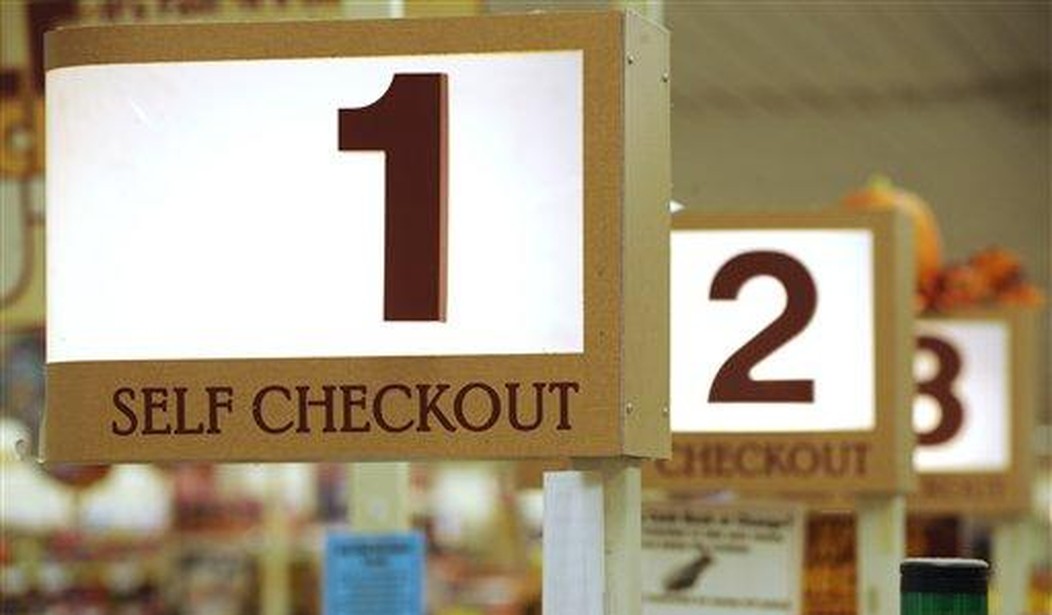First, big box stores like Wal-Mart introduced self-service checkout stands. You know — the ones where we shoppers begrudgingly do the jobs of the stores for free while under intense electronic and in-person surveillance and all without so much as a discount or meaningful human interaction? Well, now — thanks to the Biden economy — the newest trend at restaurants and stores with self-service checkouts is to coerce and guilt consumers into adding unearned tips to their total.
I don’t know about you, Dear Reader, but I grew up in an era when tipping was in direct proportion to the quality of a service rendered. Better service was rewarded with a better tip, but the service component had to be there. Not so today. When did the simple act of buying a product become a service? And it’s especially baffling when a shopper goes to the store, finds and removes the item from the shelf, takes it to the checkout, scans, and bags the item all on his own. Where exactly is the service in that transaction? There isn’t any, and yet a tip is still expected?
According to the New York Post, many businesses claim “these tipping prompts are completely optional, and the extra gratuity is split between all employees.” However, in reality “tips at a self-checkout machine might never even get to an actual employee since protections to tipped workers in the federal Fair Labor Standards Act don’t extend to machines.” Clearly, this type of tipping is nothing but a blatant attempt by businesses to increase revenue, not to reward good service. And all the while, costs are increasing, taxes are rising, and inflation is growing for the consumer.
Recommended: Twitter’s Middle Management Problem Exposed by Treatment of Daily Wire’s Documentary
Granted, this new tip coercion is programmed in and the businesses could remove it at self-service checkouts if they really wanted to do so, but do they? No; most businesses count on the pressure customers feel to be good people who aren’t seen as cheapskates, even when no service has been rendered. “Tip creep,” as it’s known, has been found to prompt “customers to leave higher tips in transactional situations,” and self-checkouts are seen “as a way to guilt-trip the person into tipping on something when they typically wouldn’t.”
Most Americans are generous people, but this type of tipping smacks of “everyone gets a trophy” culture to me. It’s also a holdover from the pandemic, when people tried to be generous to help businesses stay in business and workers to keep their jobs. As former busboy Bryan Reilly, 24, of Massapequa, Long Island, told the New York Post, “It feels like it’s becoming my responsibility to make up for their workers being paid so little. This ‘tip everywhere’ thing is getting extremely out of hand.”
Consumer beware. Check your receipts, and don’t feel pressured to tip when it’s not warranted.










Join the conversation as a VIP Member